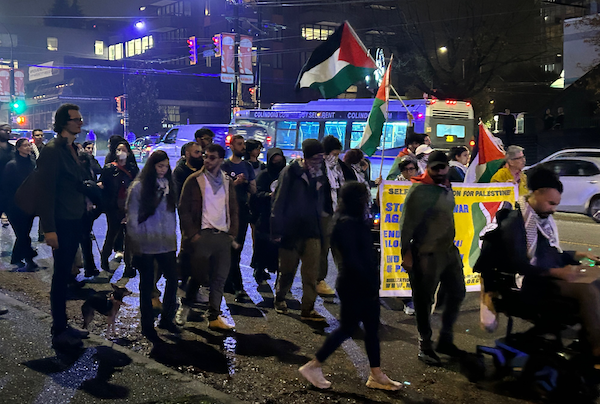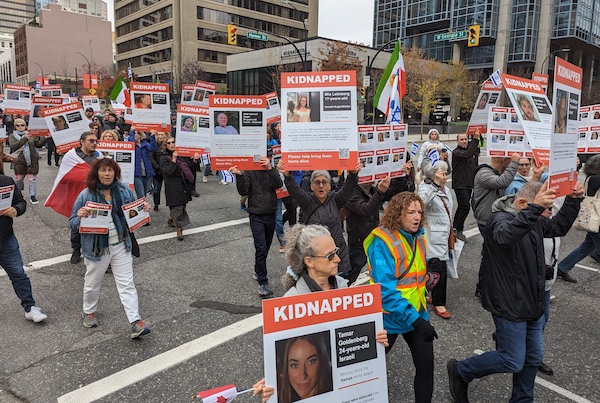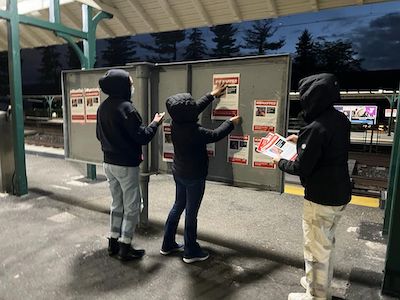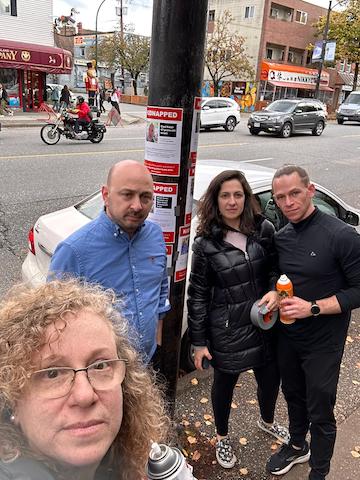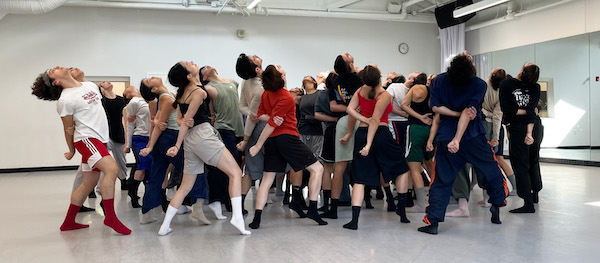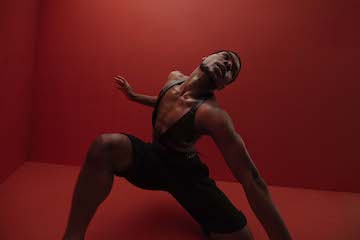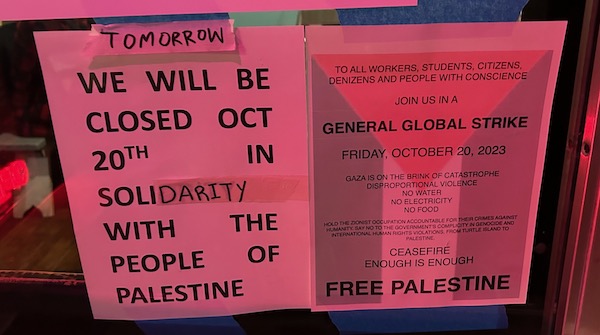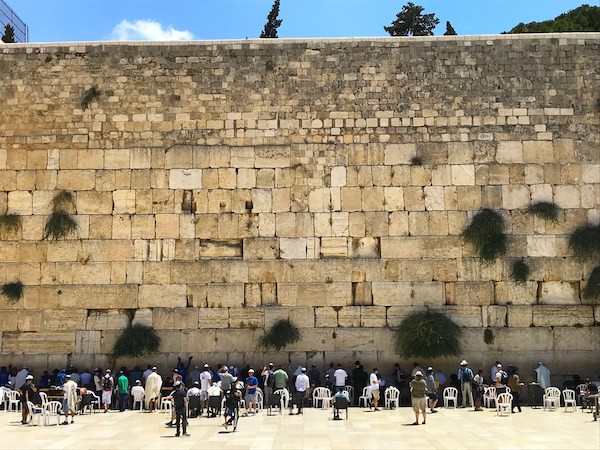For safety reasons, Jewish Federation of Greater Vancouver is asking community members to avoid anti-Israel protests or events. (photo by Larry Barzelai)
“We are safe,” says Ezra Shanken. The chief executive officer of the Jewish Federation of Greater Vancouver reassured local Jews that, in light of massively increased tensions globally, there are no specific increased threats to the Jewish community in British Columbia.
Despite fears, no serious attacks or incidents of vandalism have been reported, with the exception of an incident in Surrey. Someone threw eggs at the home of Rabbi Falik Schtroks, spiritual leader of the Centre for Judaism of the Lower Fraser Valley, and a swastika was drawn in felt pen on a window of the home.
“One of the things that people who hurt the Jewish people … don’t realize, when that happens, we always come together,” the rabbi told CTV News.
“We’ve seen what happened to Rabbi Schtroks’ place,” Shanken said. “We take that very seriously. But, on the whole, we are safe.”
Jewish community organizations, under the leadership of the Jewish Federation in partnership with other agencies, especially those with physical spaces, like synagogues, schools and community centres, work year-round on security issues, ready for any possible local impacts that so frequently coincide with overseas conflicts.
Shanken credited Federation’s “very active” security committee and the professional security director, all of whom are coordinating among various Jewish agencies.
As he has at successive public events, Shanken heaped kavods on the Vancouver Police Department, the RCMP and other police agencies.
“The amount of resources they are expending on our community, to make sure that we are safe, is astronomical,” said Shanken. “I have just so much gratitude for them and for all they do for us, day in and day out.”
He encourages individuals who encounter police at the Jewish Community Centre, outside synagogues, schools or elsewhere, to take a moment to express gratitude.
“Go up, shake their hand, thank them, give them a hug, give them some cookies, give them some food, make them feel like they are being loved,” he urged.
In addition to simply being a kind thing to do, showing appreciation for the police, Shanken said, is a way to further demonstrate the moral divide between the Jewish community and those who are protesting Israel. Shanken said police working at anti-Israel rallies have been spat on and had things thrown at them.
“I want to make sure that there couldn’t be a clearer distinction in our community from those on the other side when it comes to how we treat our first responders and our law enforcement,” he said. “We are here to say thank you and to engage with them because they are keeping us safe.”
Although schools saw some understandable decline in turnout on the so-called “Day of Rage” called by Hamas against Jewish individuals and institutions worldwide for Oct. 13, Jewish British Columbians are going about their lives.
“People are coming into our JCC,” said Shanken. “They know they should come here and, if anything, they should be here so we’re sending a message that says we will not be dictated to on how it is that we can live within our community by others. We are going to come out and we are going to be strong, proud people within our communities, enjoying the things our community has to offer.”
In a message to the community in advance of the Hamas call for violence worldwide, Federation assured that “we will always act in a proactive, abundantly cautious manner when it comes to community security.”
The communication added that “we also recognize that these calls are also designed as a tool of intimidation and fear to harm our mental and emotional health. They are meant to stop us from going about our daily lives, regardless of whether there are specific security threats.”
The Vancouver Police Department, the RCMP and other security forces are maintaining a visible presence in front of high-profile organizations, including schools, synagogues and the JCC.
“Please note that there may not be a car present at all times and you may not see people in uniform,” the message noted.
Increased patrols are taking place around all Jewish institutions. In addition, Jewish organizations have been flagged by police as priority institutions, which means that any emergency call to law enforcement will result in an immediate and enhanced response, Federation said.
Federation is also working with partner organizations, as they do always, around security protocols.
For individuals and families, Federation is asking people to avoid anti-Israel protests or events. At Jewish community rallies or vigils, people are asked to not engage with protesters. At all times, people should stay aware of surroundings, and report anything suspicious to the police.
To ensure you are receiving all security updates and other communications from the Jewish Federation of Greater Vancouver, click the “Connect” button at jewishvancouver.com. The Federation website also includes resources for talking to children about the situation, and links to specific, up-to-the-minute news on events in Israel and elsewhere.

